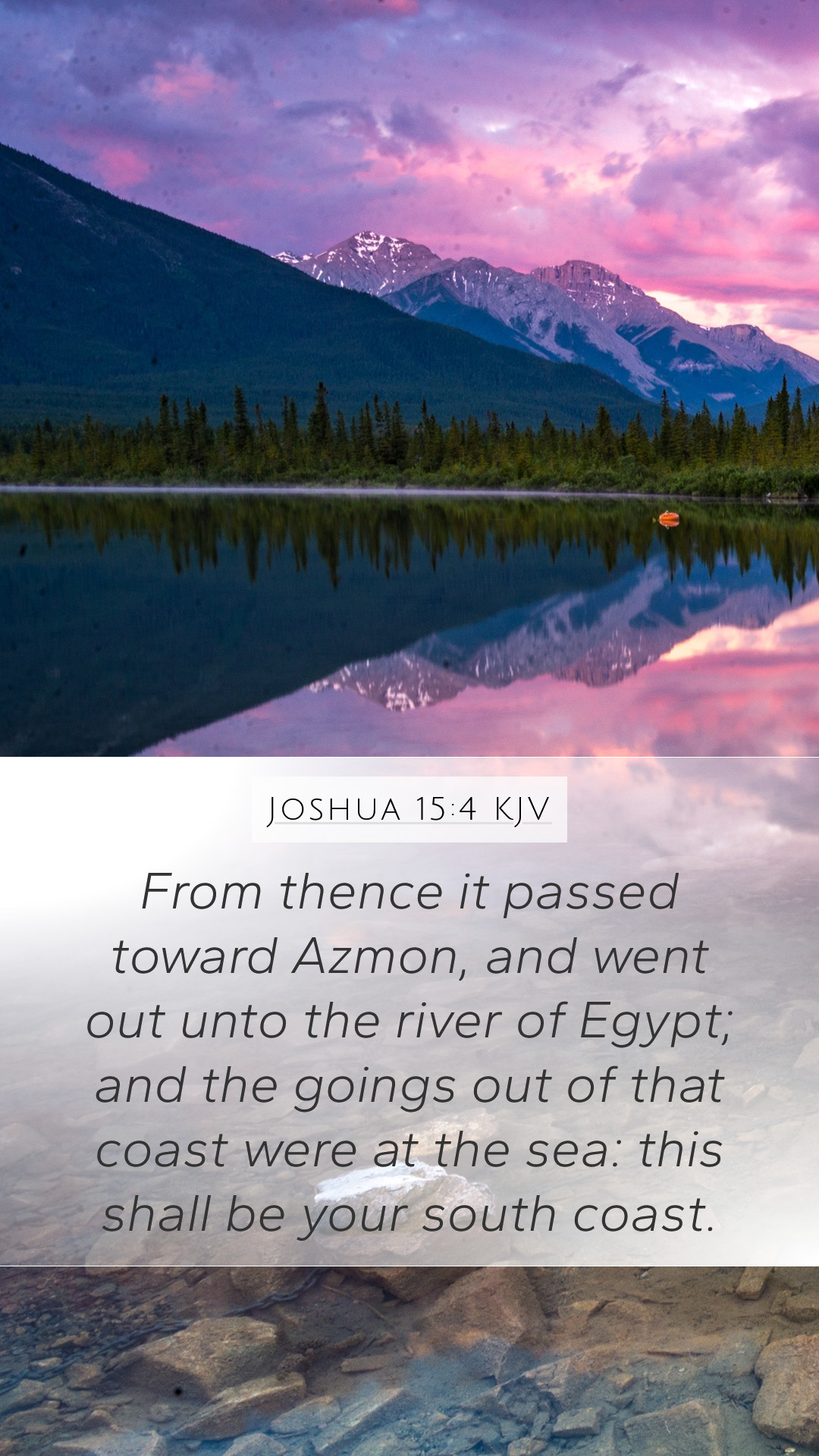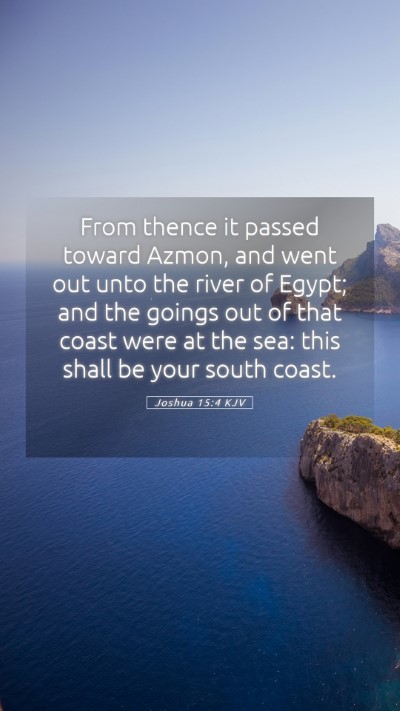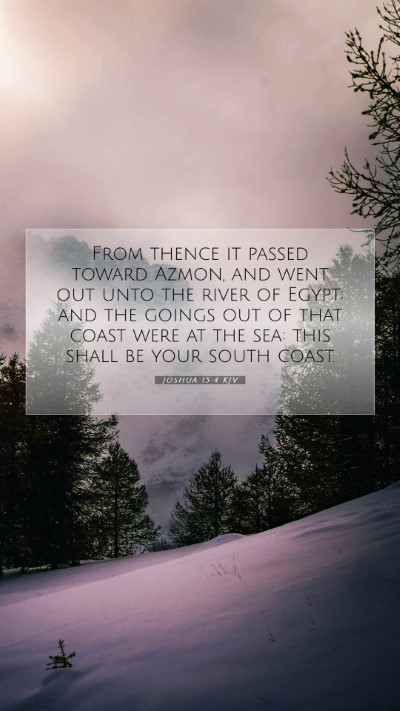Understanding Joshua 15:4
Bible Verse: Joshua 15:4
This verse is a part of the historical narrative detailing the distribution of land to the tribes of Israel. It provides insights into the geography and significant landmarks that were relevant during the time of Israel's conquest of Canaan.
Bible Verse Meanings and Interpretations
In Joshua 15:4, we find that the border of the tribe of Judah begins at the southern end of the Dead Sea and extends to various key geographical markers. This specific verse highlights:
- The importance of land distribution, a significant theme in the book of Joshua.
- The fulfillment of God’s promise to Abraham regarding the land of Canaan.
- Judah's prominence among the tribes, as it was the lineage of King David and eventually Jesus Christ.
Bible Commentary Insights
Matthew Henry's Commentary emphasizes the meticulous nature of the land allotted to Judah, suggesting that the precise borders had spiritual significance, symbolizing God's unerring guidance and provision. Henry notes that these borders were not just geographical, but they also represented God's promises being fulfilled in a tangible manner.
Albert Barnes' Notes on the Bible adds an important observation regarding the historical context: the description of the boundary serves as a reminder of the challenges the Israelites faced and God's faithfulness in leading them to secure the land that was promised. Barnes also highlights that the geographical symbols mentioned point to events and realities that would mark Israel's identity as God's chosen people.
Adam Clarke's Commentary discusses the significance of the southern border, linking it to historical events and the struggles faced by Native tribes. His commentary further explores how these borders relate to contemporary Israel, providing a vital connection between past and present. Clarke also points out that the accurate listing of borders serves to affirm the authority of scripture and God’s covenant promises.
Significance of Joshua 15:4
This verse carries multiple layers of significance:
- Historical Context: Understanding the geographical context enhances our bible verse understanding and illuminates the history of God's people.
- Theological Implications: The allocation of land is more than mere geography; it is an execution of divine promise and covenant.
- Identity Formation: The detailed borders contributed to a communal identity for the tribe of Judah, fostering unity among its members.
Application to Daily Life
Through the explanation of Joshua 15:4, readers can glean practical insights for their own lives:
- Trusting God's Promises: Just as Israel trusted in God for their land, believers today can have faith in God’s promises for their lives.
- Understanding History: Acknowledging the faith journey of the Israelites can inspire personal reflection on one's life and faith journey.
- Community and Identity: This verse encourages believers to find their identity within their faith communities and to support one another as they grow spiritually.
Cross References
For further study and deeper bible verse interpretations, readers might consider the following related verses:
- Genesis 15:18-21: God’s promise to Abraham regarding the land.
- Numbers 34:1-12: Detailed instructions on land boundaries for the tribes of Israel.
- Joshua 18:1-3: The role of Joshua in distributing the remaining land to the other tribes.
Conclusion
The meaning of Joshua 15:4 goes beyond its literal understanding, inviting readers into a richer, more profound exploration of God’s faithfulness and the importance of community identity in faith. With each verse, we are encouraged to delve deeper into bible study insights, enhancing our understanding of scripture and its application in contemporary life.


